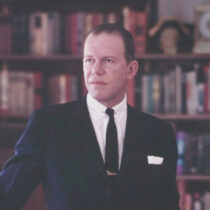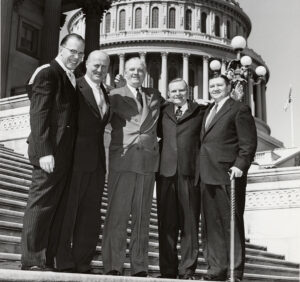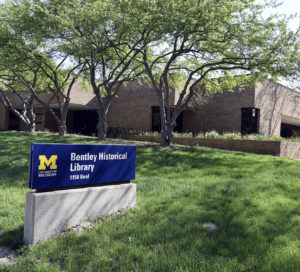News Stories

A Shooting at the U.S. Capitol
What started as a routine day in the House of Representatives ended with one congressman being given a 50-50 chance at survival.
by Katie Vloet
The day was March 1, a Monday, and the young lawmaker was walking down the aisle of the House chamber when he heard what sounded like firecrackers. Colleagues raced to hide under their seats, but no room remained for him. Unable to duck and cover, the congressman from Michigan was a sitting duck.
“I remember being hit with what felt like a terrific blow on the chest. I didn’t realize it was a bullet. It felt more as if somebody had taken a club and socked me on the chest and knocked the wind out of me,” the congressman later recalled. He lay on the floor 15 to 20 minutes, with enough clarity at one point to ask a friend to call his wife so she wouldn’t hear about the shooting on the radio. She was in her seventh month of pregnancy at the time.
Somewhere along the way, he dropped his glasses and 65 cents on the House floor. Once emergency workers reached him, he was rushed to the Casualty Hospital seven blocks away. After one operation to save his life, the surgeon gave him a 50-50 chance at survival: “He’s in the hands of the Lord now.”
Terrorists or Heroes?
“Viva Puerto Rico libre!” the four armed protesters – one woman and three men – yelled as they opened fire. Rep. Alvin M. Bentley, R-Michigan, was 35 years old at the time he was shot in the chest.
The relationship between the island and the U.S. was complex. In 1898, the United States had annexed Puerto Rico. A U.S. military government that ruled the Caribbean island even changed its name to “Porto Rico,” until it was changed back years later. For many years, the U.S. controlled the economy and governance of the island, until 1947, when the U.S. granted Puerto Ricans the right to elect their own governor.
In 1952, the island became a U.S. commonwealth, and this flexing of American imperialism did not sit well with many in Puerto Rico. So it was that the Puerto Rican flag-waving nationalists who shot Bentley and four other members of Congress were labeled terrorists in the U.S. but were lauded as heroes at home.
Never Again
Bentley landed on the right side of the 50-50 odds he was given by his surgeon. He credited his youth and “rugged constitution,” as well as the angle from which he was shot. The high-velocity .38 caliber Luger fired at him in such a way that the bullet entered high on the right side of his chest and came out the lower left side of his abdomen.

Alvin Bentley, far left, with other survivors of the 1954 attack on the U.S. Capitol.
“It passed completely through a three-by-six-inch leather appointment book in my right coat pocket, which may have deflected it somewhat,” he later recalled.
He received almost 2,000 letters from Puerto Rican schoolchildren alone, wishing him a speedy recovery “assur(ing) me that they love America and that Puerto Rico isn’t composed of gangsters.” He agreed that the people of Puerto Rico were “entirely blameless” and said the incident was caused by a “lunatic minority.”
In the aftermath, Bentley said during an interview with a newspaper that a proposal to install a bullet-proof seven-foot glass around the House and Senate visitors’ galleries “might have some merit, however grotesquely it would seal off Congress from the people.”
“The other, and probably more important, safeguard is for a more professional Capitol police force, with stricter standards, trained in, among other things, marksmanship. At present, the largely untrained, politically appointed 157-member Capitol police force doesn’t even carry guns,” Bentley said.
He believed the public should always be allowed to see Congress in action. “If this is an occupational risk, we legislators must accept it with good faith – and confidence that never again will there be a murderous assault in the halls of Congress.”
On January 6, 2021, protesters – many of them armed and waving flags – stormed the U.S. Capitol. In all, 140 people were injured and five people died during or shortly after the riot.
A Lifetime of Service
Bentley left Congress in 1960 and ran a close senatorial race that same year, winning the Republican nomination but losing the election.
In 1961, Bentley established the Alvin M. Bentley Foundation to support educational, scientific, and charitable projects. In 1967, he donated funds to endow a chair in the Department of History honoring the memory of his parents. He was later elected to U-M’s Board of Regents.

Construction on the Bentley Historical Library, named for Alvin Bentley, began in 1971.
Today, the Bentley scholarship is one of the most competitive scholarships U-M awards to first-year undergraduate students.
Bentley died in 1969 at the age of 50. In the fall of 1971, his widow, Arvella, donated funds to build new quarters for the Michigan Historical Collections, which became the Bentley Historical Library.
Bentley’s papers are open to the public.
